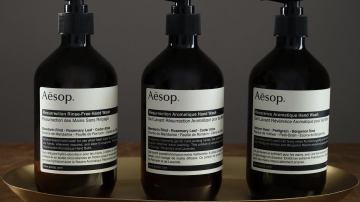Five-month-old beauty brand Kiki World is focusing its customer engagement efforts on product and marketing co-creation. Beauty brands including Topicals, Dieux and Bread are also testing co-creation with their community members, via the digital platform Try Your Best.
Unlike traditional loyalty programs that reward customers for purchases, Kiki World’s strategy rewards customers from the first moment customers engage with the brand, either by using products or on its website. A near-field identification tag found on each of the brand’s products tracks when a product is opened, plus the brand tracks community members’ votes on the colors and details of soon-to-launch products. Kiki has accumulated a community of over 5,000 members, who log on to www.kiki.world. For marketing, Kiki World has leveraged press, social media and, during New York Tech Week from October 16-18, a billboard in Times Square.
Co-creation, or the process of involving customers in choosing product attributes, allows customers to get more involved with the brand and increases loyalty. Over 50% of all of Kiki World’s product sales have come from shoppers who have voted on at least one co-created Kiki campaign. The brand is currently raising a funding round and declined to share sales.
“Whenever you open [our] Pretty Nail graffiti pen to use it, your phone silently collects points, up to once a day,” said Jana Bobosikova, founder of Kiki World.
The brand has so far received over 12,000 votes on three products that have launched: a nail graffiti pen, a temporary hair color paste and a makeup paint marker. Voting on illustrations that will be featured on a soon-to-launch product, spot patches, will close in November.
“A couple of years ago, e-commerce was still a very top-down, hierarchical experience for consumers, where they were doing a lot of the work,” said Brendon Garner, co-founder and chief product officer of Kiki World. “They were sharing, engaging and purchasing. A lot of that input was one-sided. We set out to leverage our community to dictate everything we do. Anybody who wants to be involved in the development of our products has the option to do so.”
Offering similar opportunities for engagement is important for TYB, a digital play-to-earn platform. Since signing on with TYB, its partner brands like Topicals, Dieux and Bread have seen a 28% increase in purchase frequency, on average, according to TYB. The platform’s play-to-earn model is similar to Kiki World’s approach to co-creation and collectibles, in that it allows customers to earn points by engaging with a brand.
“We’ve seen brands lean into simple community tools as a way to chat with customers, but they often stop short because the [tactics] aren’t designed to fuel commerce,” said Ty Haney, TYB CEO. “Our partner brands make community measurable by connecting engagement to product purchases.”
Such engagement also shows customers’ intent to purchase, making forecasting demand easier and leading to less unwanted inventory. The voting process may even show which colors are most likely to sell based on demand.
As for rewards, “We’ve set up dynamic profiles for our members tied to [digital] collectibles that reflect various levels of membership that they’ve achieved through their engagement,” said Garner. “[Higher-tier] memberships give [you access] to more interesting, high-intent, IRL activities.” Members gather points for every vote on an upcoming product, as well as by engaging in email marketing prompts. Kiki World plans to host its first member event later this year, with included segmented access by membership level.
Garner said voting can also inform targeting, when it comes to marketing, “because you already have the intent data that customers are interested in a specific product.”
In the future, Kiki World hopes to sell its software facilitating co-creation to other brands. The software is built by in-house product developers. Over the next year, Kiki World is set to release multiple product collaborations, including with fashion brands, that make use of customer co-creation.
“Our software can facilitate interactive votes across industries,” said Garner. “Just for Kiki, we’ve identified 21 product components that can be voted on, but there are no limits as to the number of attributes that can be voted on.”
Kiki World has found that higher engagement leads to greater loyalty. Over 30% of its members have voted at least two times, and its top-spending members, together, have voted over 200 times as of October.




